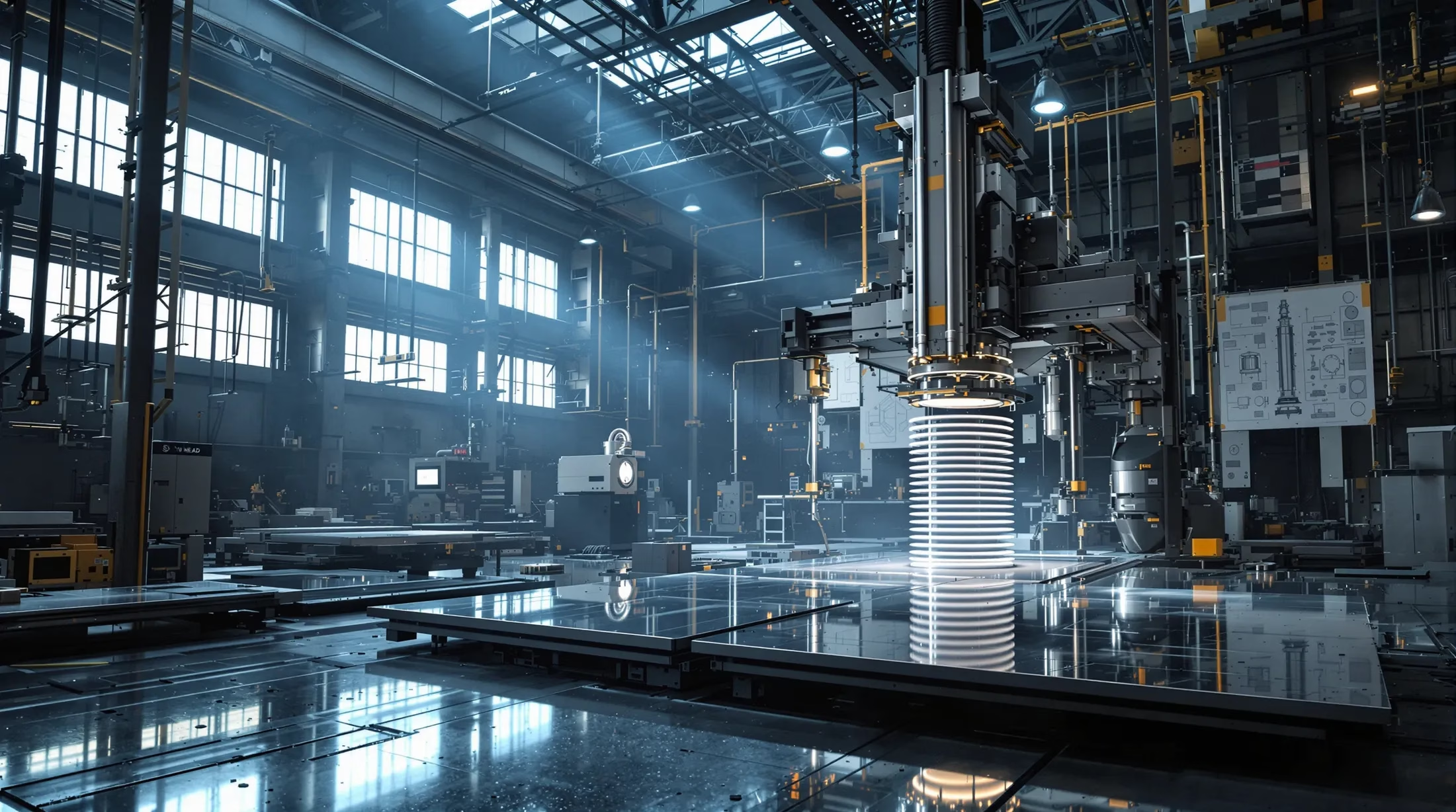Looking to transform your manufacturing vision into reality? Custom Manufacturing Services offer tailored solutions that bridge the gap between concept and creation. Let’s explore how these specialized services can revolutionize your production needs and drive innovation in your industry.
Understanding Custom Manufacturing Services
Custom Manufacturing Services represent a specialized sector in the industrial landscape, offering tailored production solutions to meet specific client requirements. These services extend beyond standard mass production by providing personalized approaches to manufacturing challenges. With capabilities spanning precision sheet metal fabrication and electro-mechanical assembly, custom manufacturers deliver components and products designed to exact specifications rather than off-the-shelf solutions.
Modern custom manufacturing facilities integrate advanced technologies with skilled craftsmanship to produce everything from individual components to complete assemblies. The flexibility inherent in these services allows businesses to optimize their products for functionality, cost-efficiency, and market differentiation. Whether you’re developing a prototype or scaling up production, custom manufacturing partners provide the expertise and infrastructure necessary to transform concepts into tangible products with precision and reliability.
What Are Custom Manufacturing Services?
Custom Manufacturing Services encompass a comprehensive range of specialized production capabilities designed to create bespoke components and products according to client specifications. These services typically include:
- CAD designing and engineering
- 3D scanning and modeling
- 3D printing for rapid prototyping
- CNC machining operations
- Custom castings production
- Precision sheet metal fabrication
The scope of these services extends across numerous industries, with particular expertise in household appliances, electrical equipment, and electronic products. Custom manufacturers serve as production partners who collaborate closely with clients throughout the development process. They translate technical requirements into manufacturable designs, select appropriate materials and processes, and implement quality control measures to ensure the final products meet or exceed expectations.
The Importance of Customization in Manufacturing
Customization in manufacturing has become increasingly vital in today’s competitive market environment. It enables businesses to differentiate their products, address specific customer needs, and solve unique operational challenges that off-the-shelf solutions cannot adequately address. The ability to customize components and products gives companies a significant advantage in terms of product performance, efficiency, and market positioning.
Beyond product differentiation, customization drives innovation across industries by encouraging the development of novel solutions to complex problems. It allows for iterative improvements based on real-world feedback and changing market demands. Additionally, customized manufacturing often results in more sustainable practices by eliminating unnecessary features, optimizing material usage, and extending product lifecycles.
Key Technologies in Custom Manufacturing
Custom manufacturing has evolved dramatically through the integration of advanced technologies that enable unprecedented precision, efficiency, and versatility. Today’s leading custom manufacturers leverage a sophisticated technological ecosystem that includes:
| Technology | Primary Function | Benefits |
|---|---|---|
| CAD Designing | Digital conceptualization and modeling | Precise specifications, easy modifications |
| CNC Machining | Precision fabrication | High accuracy, repeatability |
| 3D Printing | Rapid prototyping | Quick iteration, complex geometries |
| Metal Fabrication | Material processing | Versatility, durability |
CAD Designing and Its Role
Computer-Aided Design (CAD) serves as the foundation of modern custom manufacturing processes, transforming abstract concepts into precise digital blueprints. Professional CAD designers work with powerful software platforms to create detailed 3D models that specify every aspect of a component’s geometry, dimensions, and material properties. This digital approach enables manufacturers to visualize products before production begins, identify potential design flaws, and optimize components for both functionality and manufacturability.
The significance of CAD in custom manufacturing extends far beyond simple drafting. It facilitates effective communication between clients and manufacturers by providing photorealistic renderings and accurate technical specifications. These digital designs flow directly into production systems, informing subsequent manufacturing processes like CNC programming and 3D printing.
The Precision of CNC Machining
CNC (Computer Numerical Control) machining represents the pinnacle of precision in modern manufacturing, utilizing mathematical coordinates and sophisticated computing systems to control cutting tools with remarkable accuracy. Operating on Cartesian coordinate principles, these advanced machines execute complex cutting, boring, and drilling operations with tolerances measured in thousandths of an inch.
- Translation of digital CAD models into machine-specific instructions
- Automated cutting tools following predetermined paths
- Consistent quality across production runs of any size
- Versatility across multiple materials including aluminum, steel, and engineered plastics
- Optimization capabilities for virtually any solid material
The automation inherent in CNC systems ensures that every component produced maintains identical specifications without human variability. For businesses requiring custom components, this combination of precision, material flexibility, and reliability represents a significant competitive advantage, enabling the production of complex parts that would be impossible to create using traditional manufacturing methods while maintaining cost-effectiveness even for smaller production volumes.
Innovations in 3D Printing
| Innovation | Capability | Benefit |
|---|---|---|
| Metal Printing | Functional component production | Mechanical properties comparable to traditional parts |
| Multi-material Printing | Complex assembly creation | Varying material properties in single production |
| Large-format Printing | Substantial component production | Expanded size capabilities |
| Micro-printing | Detailed component creation | Specialized application precision |
3D printing has revolutionized custom manufacturing by making previously impossible designs not only feasible but economically viable. Using additive manufacturing processes, 3D printers build objects layer by layer according to precise digital specifications, allowing for the creation of complex internal structures, organic shapes, and integrated components that traditional subtractive manufacturing cannot achieve.
For businesses seeking customized solutions, 3D printing offers unparalleled design freedom, eliminates many tooling costs, and enables cost-effective production of low-volume specialized components. The technology continues to advance rapidly, with improvements in materials, accuracy, and production speed constantly expanding its practical applications in custom manufacturing.
Case Studies: Success Stories in Custom Manufacturing
The power of custom manufacturing services becomes most evident through real-world applications that have delivered exceptional results across industries. These success stories demonstrate how tailored manufacturing solutions enable companies to overcome challenges, innovate their offerings, and secure competitive advantages. From household appliances to sophisticated electronic products, custom manufacturing transforms unique visions into precise, efficient realities.
- Enhanced product development cycles
- Improved manufacturing efficiency
- Innovative design solutions
- Cost reduction opportunities
- Quality improvements through advanced technologies
Innovative Projects and Their Impact
| Project Type | Innovation | Results |
|---|---|---|
| Home Appliance Manufacturing | Proprietary component system | 30% energy efficiency increase, 15% cost reduction |
| Electronic Device Development | 3D scanning and printing integration | Development time reduced from 18 to 7 months |
Through advanced CAD designing and precision CNC machining, a home appliance manufacturer revolutionized their next-generation product line. The resulting components achieved remarkable improvements in both energy efficiency and production costs, establishing the client as an industry innovator.
Similarly, a technology startup leveraged 3D scanning and printing services to accelerate their product development cycle. This approach enabled the creation of complex geometries previously impossible with traditional manufacturing methods, leading to significant market disruption and revenue generation.
Client Testimonials and Feedback
- Electrical Equipment CEO: – transformed product development process through expert sheet metal work and precision assembly, maintaining exclusive partnership for five years
- R&D Head, Consumer Electronics: – achieved exceptional versatility in projects, from 3D scanning to advanced castings, with continuous process improvements yielding substantial cost savings
These testimonials highlight the transformative impact of partnering with skilled custom manufacturing services, emphasizing not just technical excellence but also the value of collaborative, long-term relationships that drive continuous improvement and innovation.



